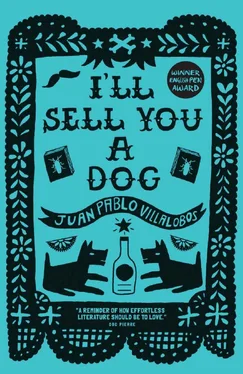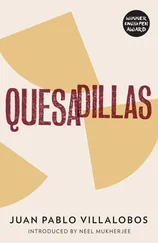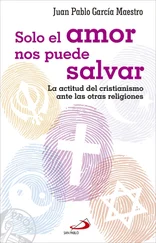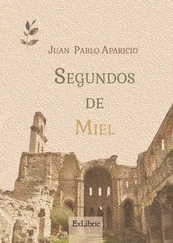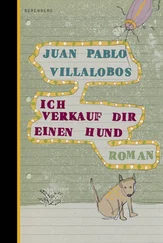Turnup woke up later and spent the next few hours watching the shadows that things project onto the surfaces of the world. He spent a whole afternoon observing an ant, studying its habits. Meanwhile, I was followed by someone my mother had sent, a colleague from the post office who owed her a favour, because Mum used to cover for him when he missed work. The spy managed to find out that I was going to La Esmeralda and, to jack up the value of the favour and thus clear all his debts, he told her all sorts of scandalous details, specifically that my classmates were a bunch of scruffy, gay, communist stoners. And that we’d learned all this from the finest — the teachers themselves. My mother banned me from ever going near the school again, on pain of being left an orphan, with her still alive. The same reproaches she used to hurl at my father were heard at home once more: Art is useless. You’ll starve to death. It’s a luxury we can’t afford. I thought: the luxury of being an artist, or of starving to death, or the luxury of doing something useless? And as if that wasn’t bad enough, the worst dig of all: Art is for spoilt little rich kids.
I tried to tell her about my supposed vocation, giving examples to refute what she said, made-up stories of imaginary painters who had overcome poverty and had their names carved into posterity in gilded letters.
‘Don’t you come to me with stories about French artists,’ she interrupted. ‘You’re just like your father and I won’t put up with it. Look at him. All he ever got from having a vocation was frustration, pure and simple. Just look how we ended up.’
Then, when I threatened to leave home, even if it was to live on the streets, to prove to her I was going to be an artist no matter how much she opposed it, she called my sister in and, with the solemnity of categorical lies, the ones there’s no turning back from and which oblige those who’ve told them to be loyal until death, she announced that she was suffering from arthritis and that the doctor had prohibited her from working.
‘I’ve come this far,’ she said, as if her batteries had run out: ‘Now it’s your turn.’
From that day on, Mum devoted all her time to two things: going to the doctor and looking after her dogs. My sister got her first job as a secretary and I never returned to La Esmeralda. My adventure hadn’t even lasted a year, but I had at least taken advantage of the life-drawing classes to see some naked women. Under the pretext of ‘capturing their essences’, I’d stared so hard at them, retaining in my mind each and every one of their folds, and had masturbated so much and so diligently that, at times of visual and carnal exhaustion, I’d reach a gloomy conclusion: the suspicion that perhaps the mystery of women was not quite so wondrous as to make it worth devoting one’s life to them.
My wings clipped, I took the easiest option: I asked my uncle for work on his taco stand. Now that I had to give up my supposedly true vocation, it seemed as good a job as any; better, even, than some of the ones whose systems of slavery were so badly disguised. To be honest, perhaps being a taco seller appealed to me more because I’d developed a grudge against dogs. My uncle’s stand was in the Candelaria de los Patos and he opened at night, which meant we started work at half past five. I chopped the onion and coriander, kept an eye on the tortillas, served the hibiscus tea and cinnamon rice milkshakes and gave the punters their change and a free mint. During the week the stall shut at midnight, and at the weekend, one-thirty in the morning. I gradually grew used to spending hours on my feet, going back and forth, joining in with the regular customers’ banter. The only thing that annoyed me and to which I never resigned myself was the stench on my hands, my artist’s hands, which now smelled of a mixture of onion, coriander, mint, sweaty notes and coins.
Tacos came and went, and I waited patiently until, early one morning, I pulled my little trick with the nylon stocking. It was my sister’s, who, when she discovered in the morning that someone had been rummaging around in her chest of drawers, looked at me suspiciously until she saw Turnup lying stiff on the floor. Then she said: ‘You took your time.’
To my surprise, my mother didn’t request an autopsy. She went out for a walk and came back with a mutt she’d found roaming around outside the market. That’s what she called him, Market, even though that wasn’t even a dog’s name. When my sister pointed this out, Mum refused to give him another name, playing dumb. It was something else she pretended to do around that time, as well as stopping work: pretending she didn’t understand and sometimes, pretending to be mad, with no warning. Now that my sister and I were adults she seemed to have discovered that she could change the way she manipulated us, switching from her habitual intransigence, which by now was wearing thin, to an absent-minded attitude with which she gradually and heedlessly transferred to us the weight of her responsibilities.
I promised my mother I would bury Turnup and took his body to an early morning taco stand near our house. They gave me five pesos for it: the price of four beers. The next day I took her out for breakfast to cheer her up. When the taco seller saw me approach and order two tacos with everything, his hair bristled in shock, as if imagining we’d involved him in some kind of black magic ritual.
‘Are they good?’ I asked Mum as she chewed diligently.
With her left hand she made the sign for ‘so-so’ and then, once she’d swallowed her mouthful, whispered in my ear so as not to offend the stallholder: ‘The meat’s a bit tough.’
I went to the Chinese restaurant practically every other day to have a beer. I always took a newspaper and occasionally, my notebook. But really what I was doing was analysing the Chinese as they went back and forth, trying to figure out their secret. One day I saw them sprinkling water in the corners of the restaurant. I went back to my apartment and copied them. The cockroaches clapped their antennae together: hydrated. Another time, I wrote down in my notebook the brands of the cleaning products I saw them use, bought the same ones and gave them to the girl who came twice a week to clean the apartment, along with a series of strict instructions: apply this one neat, dilute that one with water… The smells changed, and the shine on the surfaces was different, too. The cockroaches, blithely unaware. I invested in some plastic plants: the cockroaches started using them as a holiday resort. I put paper shades over every light bulb, which I then had to take down again in the middle of the night: the sound of their little feet walking over them kept me awake.
I started collecting fortune cookies in a box I kept under the bed. I thought that receiving a prediction every day was excessive. Dangerous, even. Occasionally, especially when I grew desperate and was about to throw in the towel, I would open one in search of a sign, which did about as much good as a few pats on the back.
Some Wednesdays, or Saturdays, I would bring Willem along with me, and he came up with the most bizarre theories: that it was the smell of the Chinese that scared off the cockroaches. That they fried them and ate them. That the decor in the place was so horrendous that not even roaches would enter the restaurant. There was an element of truth to this last claim: the restaurant was always empty. He even bought me one of those cats with an endlessly waving little paw. A china figurine, I mean. The cat became one more ride in our cockroach theme park.
Juliet took pity on me and claimed she had a comrade who spoke Chinese, a Maoist who had learned Mandarin in Peru.
‘I’ll ask him to help you out,’ she said, ‘but you have to promise you won’t ask him anything or tell anyone about him: he’s undercover.’
Читать дальше
